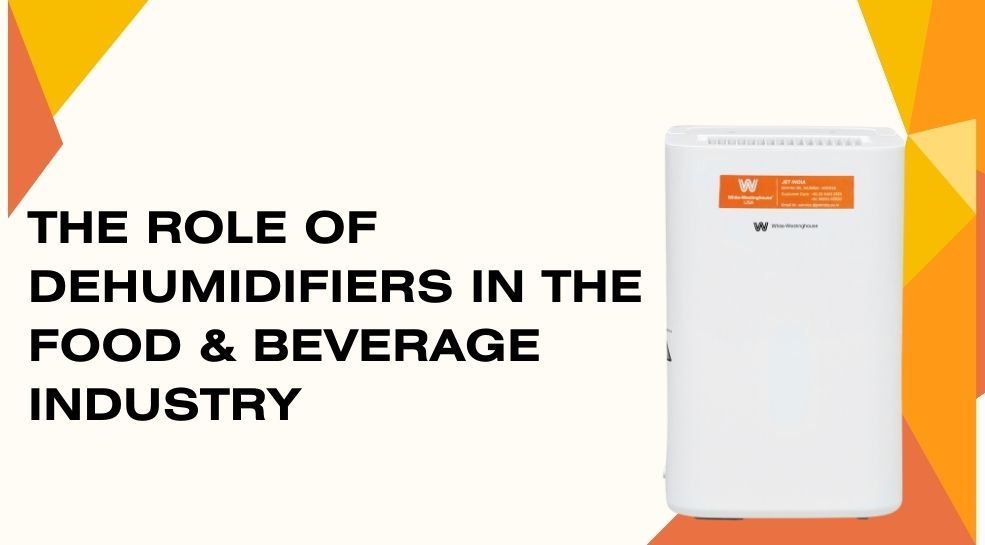
In the Food & Beverage (F&B) industry, maintaining product freshness and hygiene is non-negotiable. From
processing plants and cold storage to packaging and distribution facilities, one factor silently affects the quality of
food products—humidity.
Excess moisture in the air can lead to spoilage, microbial growth, and product recalls, all of which directly impact
brand reputation and profitability. This is why humidity control through dehumidifiers has become a critical part
of modern food production and storage.
1. Preserving Freshness of Food Products ��
Moisture accelerates food spoilage by promoting microbial activity. High humidity can make:
Dry goods like cereals, spices, and powdered milk clump together
Bakery items turn soggy or moldy
Packaged goods lose texture and taste
A dehumidifier maintains the ideal humidity range, extending the shelf life of food and ensuring products stay
fresh and safe until they reach consumers.
2. Preventing Mold, Mildew & Bacterial Growth �
Moist environments are a breeding ground for fungi and bacteria, which can contaminate raw materials and
finished goods. Even minor contamination in a food facility can cause:
Health hazards for consumers
Large-scale product recalls
Legal and compliance issues
By keeping humidity in check, dehumidifiers eliminate one of the biggest contributors to microbial contamination.
3. Maintaining Hygiene & Compliance Standards
The F&B industry is strictly regulated under ISO, HACCP, and FDA guidelines, all of which emphasize hygiene
and product safety. Controlling humidity is a crucial part of passing audits and ensuring compliance.
A dehumidifier helps facilities maintain clean, dry, and contamination-free environments, which is vital for food
safety certifications.
4. Protecting Packaging & Labels
Moisture doesn’t just affect the food—it also damages packaging. Humidity can cause:
Cartons to soften or collapse
Labels to peel off
Blister packs and shrink wraps to lose integrity
Dehumidifiers protect packaging quality, ensuring that food items remain secure, well-presented, and compliant
with labeling standards.
5. Enhancing Cold Storage & Refrigeration Efficiency 
In cold storage and beverage bottling plants, condensation caused by temperature differences can lead to water
accumulation on walls, floors, and machinery. This not only wastes energy but also creates hygiene risks.
Dehumidifiers prevent condensation, making refrigeration systems more efficient while ensuring a dry and safe
storage environment.
6. Reducing Product Waste & Loss
Humidity-related spoilage leads to rejected batches, wasted raw materials, and financial loss. By using
dehumidifiers, food businesses can reduce waste, maximize yield, and save costs over the long term.
Why White Westinghouse USA Dehumidifiers?



Final Thoughts
Humidity may be invisible, but its effects on the Food & Beverage industry are undeniable. From keeping products
fresh and hygienic to ensuring compliance and reducing losses, dehumidifiers are an essential investment for
modern food businesses.
With White Westinghouse USA Dehumidifiers, you can safeguard your products, protect your reputation, and
deliver the highest standards of quality and safety.





